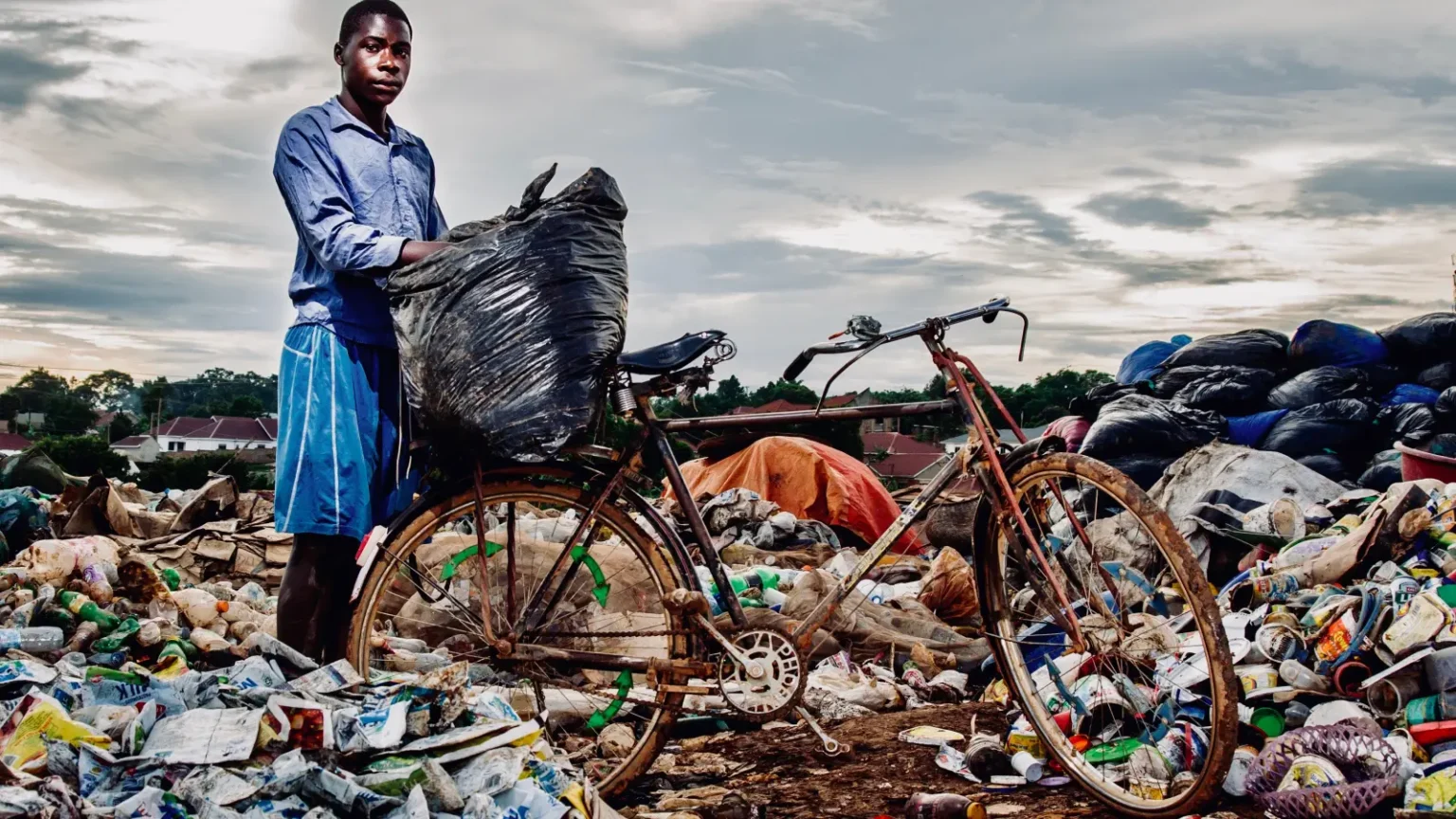- The intelligent packaging market revenue totalled US$17.8 billion in 2020, with the global market expected to reach US$46.7 billion by 2031
- Packaging companies are anticipating using the Internet of things (IoT), blockchain, and AI to improve plastic waste collection, logistical efficiency, data analytics, and customer experience
- Each year, over 15 million tonnes of plastic waste make their way into the Indian Ocean, damaging and even bringing to extinction marine life
- Around 9.2 billion tonnes of plastic have been manufactured globally, out of which only 9 per cent is recycled!
Many governments and non-governmental organizations in Africa agree that single-use plastics account for a huge chunk of issues related to environmental degradation.
Governments in Africa ban plastic use
Over 30 governments in the continent have even restricted their use, with Kenya imposing the world’s strictest plastic bag ban in 2017. Africa has been experiencing severe flooding, and one of the reasons is the blocking of drainage pipes caused by plastic bags.
Each year, over 15 million tonnes of plastic waste make their way into the Indian Ocean, damaging and even bringing to extinction marine life. The most hurt economies by plastic pollution are developing and the low-income countries, as their recycling systems generally have low capacity.
Read: UNEA at 50: Top reasons the new plastic pollution agreement matters to everyone
Plastic waste has become a significant environmental hazard. The increased production of disposable plastic items has stressed the world’s ability to recycle and re-use.
The technology helps to protect manufacturers and consumers against food and drug counterfeits.
With the plastic waste menace causing unprecedented damage globally, there has been an ongoing movement to discover and use alternative packaging materials, such as paper, glass, and metals.
The dilemma facing the world right now is that even the processes of creating plastic-free solutions often release more significant carbon emissions than conventional plastics.
With a slight tweak of the 21st-century technology, however, packaging companies can come up with intelligent packaging methods that tackle plastic waste management, sorting, and collection issues, promote circularity and reduces the carbon footprint of their packaging.
Read: Skepticism hindering blockchain technology adoption in Africa
Top packaging manufacturers strive to offer intelligent packaging choices that directly speak to consumers and educate them regarding how plastic packaging should be used, how it can be re-used, and how it can produce new streams of post-consumer recycled plastic packaging.
To curb plastic waste generation and tackle plastic trash collection problems, businesses are employing intelligent packaging solutions, such as
- RFID and NFC tags
- QR codes and barcodes
- sensors and indicators.
Packaging companies are anticipating using the Internet of things (IoT), blockchain, and AI to improve plastic waste collection, logistical efficiency, data analytics, and customer experience.
Blockchain is leading the war against plastic waste
Modern technologies are being developed to help with every stage of the plastic waste management process, from asset generation and appraisal to transfer and exchange.
Companies are establishing a plastic bank in emerging economies that reward consumers who collect waste through a blockchain-based system to improve plastic waste collecting and recycling. These consumers can bring their plastic packaging waste to collection centres and receive credits on their blockchain, which can be accessed via smart contracts or mobile devices.
Blockchain technology prevents double payment, and consumers are rewarded solely on the amount of waste they collect, allowing it to be viewed as an asset with apparent monetary, social, and ecological worth.
A case in point, Africa is making steps toward intelligent packaging. Chekkit Technologies, a Nigerian company, has adopted blockchain technology in packaging where customers can verify bought products by scanning barcodes in the package or using USSD for confirmation.
The Dutch start-up, Circularise has also developed a blockchain solution that gives an exact pricing system for any recycled material and can identify how many times the product has been recycled. In the case of plastics, it provides information on recycled components to brand owners by utilizing both the Circularise system and a tracer developed by a third party.
Empower, a plastic recycling company in Norway uses blockchain tokens to encourage donation-based recycling. They promise to clean up an equal amount of plastic garbage by weight for every Euro an organization provides.
Artificial intelligence (AI)
An insane amount of today’s plastic garbage is thrown into the oceans, forming plastic ocean debris. AI robots can be deployed to remove the plastic debris accumulated on the water’s top or rubbish that has accumulated at the ocean’s bottom.
Compared to human labour, these robots can work quicker and longer and sort plastic garbage more efficiently. If implemented, AI-powered robot has the potential to save between US$120,000 and US$130,000 per year.
The global market for sustainably intelligent packaging is experiencing steady growth driven by commercialization. According to Future Market Insights, the intelligent packaging market revenue totalled US$17.8 billion in 2020, with the global market expected to reach US$46.7 billion by 2031.
While intelligent packaging targets to decrease the amount of packaging waste created, there is also a greater emphasis on decreasing recycling and reprocessing costs.
Read: Plastic waste exports from wealthy countries poisoning people in Africa: Study
